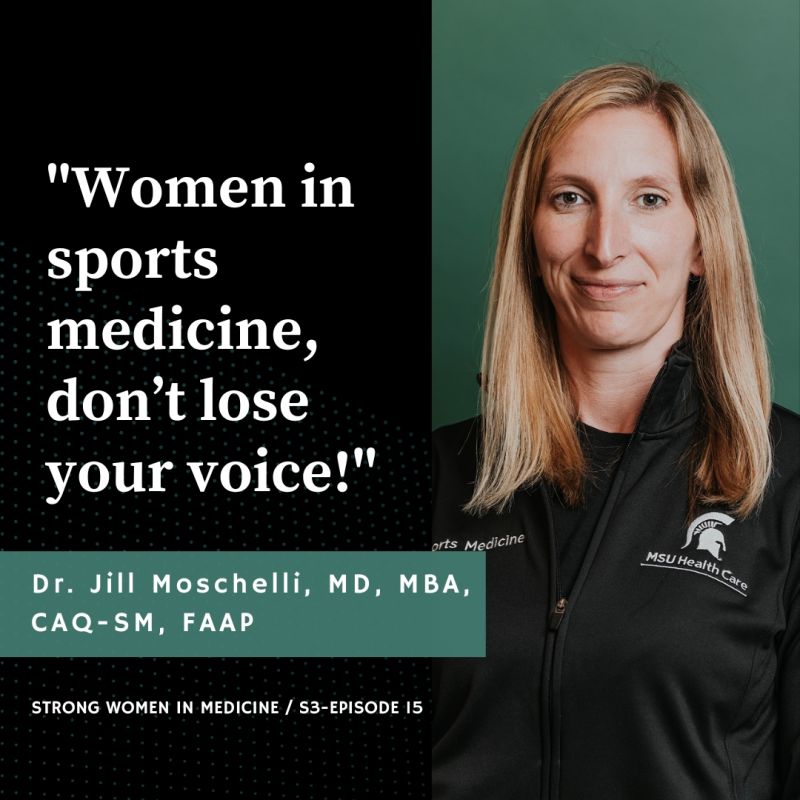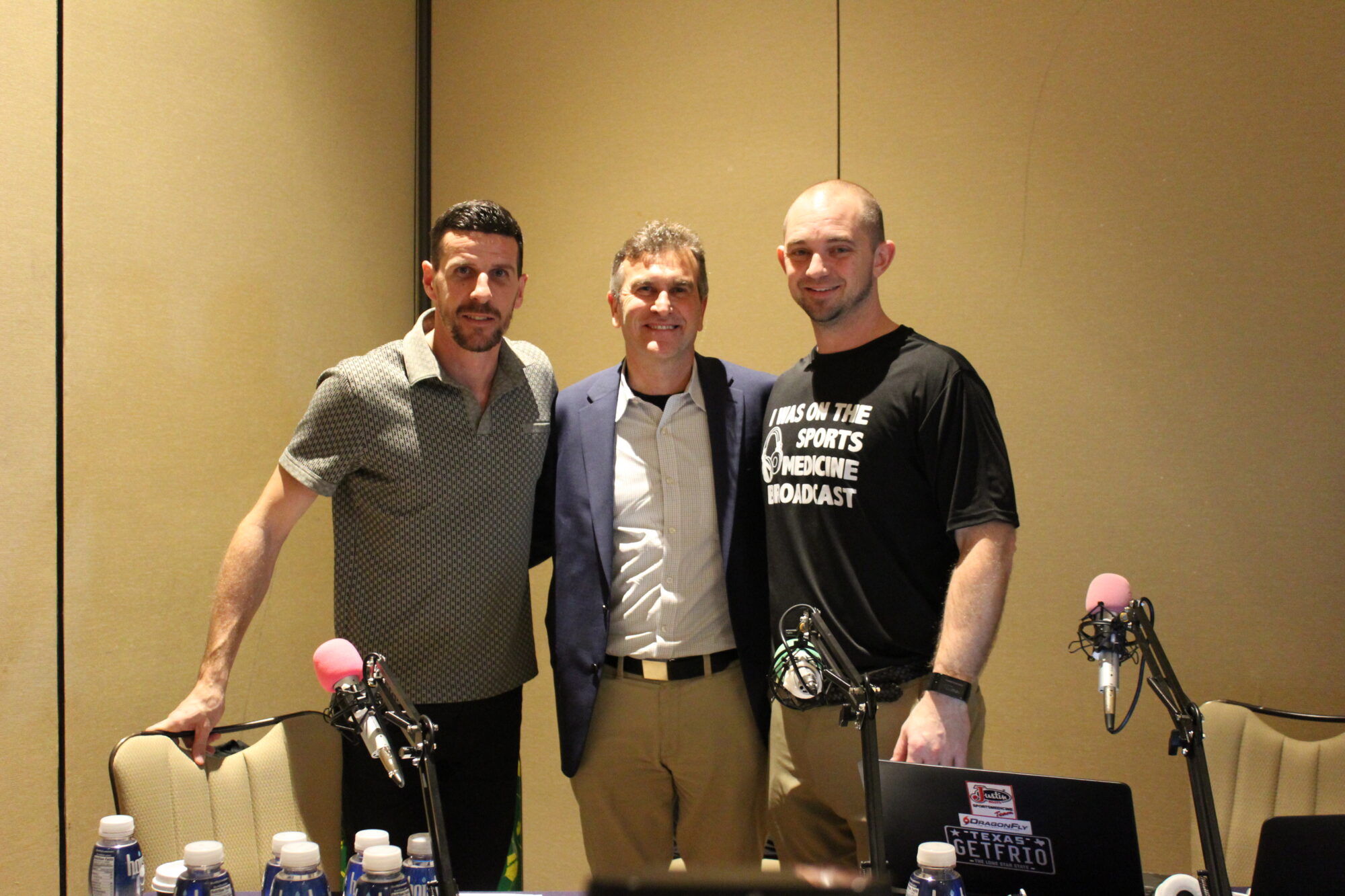Podcast: Play in new window | Download
Females Athlete Care is not the same as male athlete care. Dr. Jill Moschelli is making a career specializing in it. Megan Smith, the chairperson for Women In Athletic Training, leads the interview.

Looking into your bio, you specialize in Female Sports Medicine. Can you share with us what that entails?
Female athletes are just different than men
Female athlete triad.
Concussion recovery is different
Predisposed to different types of injuries
How popular is being a female sports medicine-specific doctor?
It is not really common, but some of it is due to comfort level.
There has been an increased discussion about women training on their menstrual cycles and understanding how each phase affects your training. When someone is looking into this- do you have any recommendations on how to get started or a basis of understanding while training during different phases?
Educating in general is the biggest first step
Educate them about their own body and their cycle
Know what is normal for you and be aware of what changes look like.
Some of those changes can be due to oral contraceptives for whatever reasons.
Basic menstrual tracking app.
Perceived performance scales but nothing has been clear or consistent…so more research is needed.
How do we ask: are you on your period?
Make it not taboo…make it part of their general health
I am going to ask a lot of questions and if you feel like you can't or do not want to answer that is fine.
“How has your menstrual cycle been?”
“Are you on any medicines that would impact it?”
We bring up topics like that at the beginning of the season so it is less taboo and breaks through the barrier.
Over the years I have taken many female-specific continuing eds, but one stood out to me which was pelvic floor dysfunction in female athletes. Is this something that you’re seeing in the clinic or refer out to a pelvic floor PT? Can you share how this can affect the training of our female athletes?
It happens more than we are aware of. It is not discussed as much.
Up to about 30% of elite female athletes experience incontinence.
Impact sports have a greater incidence.
Bringing up the conversation more often helps teach people about it.
Finding a pelvic floor therapist can be difficult
Stress Incontinence:
Inability to control the flow of urine during stress.
How can Athletic Trainers bridge that gap?
The more we talk about it the more it normalizes it.
You can be the first line of defense for those athletes.
Maybe set up a regular schedule to discuss it so they know to expect it.
Have the resources available or posted for them.
Are there areas of female patient care that you believe would be beneficial for athletic trainers to be better versed on? What are those areas? Is there training that you recommend?
Reproductive/menstrual cycle/ pelvic floor in your education as you get your degree.
Spend time discussing the differences between male and female athletes.
Have grand round discussions on female athlete care.
Females recover differently from concussions
Timetables are different for females
The treatments are similar but they might take longer.
The Female Athlete Conference every other year in Boston to tackle issues concerning female athlete care.
Dr. Jill Moschelli – sadoskij@msu.edu
Megan Smith – Twitter
These people LOVE Athletic Trainers and help support the podcast:
Frio Hydration – Superior Hydration products.
Donate and get some swag (like Patreon but for the school)
HOIST – No matter your reason for dehydration DRINK HOIST
MedBridge Education – Use “TheSMB” to save some, be entered in a drawing for a second year free, and support the podcast.
Marc Pro – Use “THESMB” to recover better.

